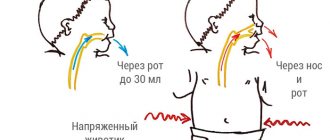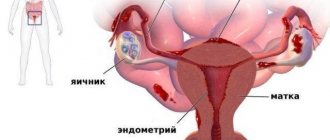Probably, none of the modern parents are afraid to “handle” a baby under one year old: responding to the baby’s needs has become commonplace. But now the child has learned to walk and even speak a little - maybe now he no longer needs to be held in the arms of an adult? It is necessary, says psychologist Lyudmila Petranovskaya. Firstly, for successful knowledge of the world. Secondly, to master the behavior of containment, without which there is a risk of growing up not fully human.
Let's compare a one-year-old and a three-year-old. The first is a helpless baby. He stands unsteadily and speaks only a few words. He cannot take care of himself in almost anything. Without an adult it will disappear immediately.
Only two years pass. In front of us is a small man. He can move freely in space: walk, run, jump, climb, crawl, squeeze, there is practically no place where he could not get if he wanted. He speaks, constructs phrases, and can clearly explain what he wants.
Takes care of himself: eats, dresses, uses the toilet. Manipulates objects, uses a pencil, brush, scissors, rides a bicycle and a swing, builds with sand and cubes. He is aware of his needs, has desires and makes plans, and shows persistence in achieving goals.
In principle, if there were no man-made dangers of a big city, a three-year-old could easily spend the whole day without needing the help of adults. He’ll eat on his own, drink on his own, keep himself occupied, and if he needs anything, he’ll come and ask for it.
The leap in development is fantastic - and in just two years. We will never be able to study as intensively as we study during this period. And we will never get the knowledge and skills that are just as important for the quality of life.
Try a simple thought experiment. Imagine that suddenly you suddenly forgot all your higher education, everything you studied at the institute or university. How will this affect your quality of life? Some people can’t do it at all if they work in a field other than the one they studied in, and there are a lot of such people now. Someone will have to change jobs. Now let’s imagine that we will have to forget all our school education—we will forget how to count, write, and read. The quality of life, of course, will decline, and many things will become difficult or impossible. But on the other hand, there are entire countries with mostly illiterate populations, and nothing. And our ancestors lived. They worked, loved, raised children - on the whole they were quite successful and happy. If, for example, they pay a pension, then you can live. But what if we imagine that we have forgotten everything we learned from the age of one to three: to eat on our own, move around, go to the toilet, dress, talk, use tools and objects? This is a real disaster. This happens after severe strokes, after accidents with traumatic brain injuries, this is truly terrible, it’s difficult to talk about the quality of life here. A person in such a state is completely deprived of independence.
That is, in fact, the most basic things that determine our quality of life by 90% are mastered from one to three years. Three universities then is such an easy drawing, shading on the basic, main body of knowledge and skills.
Therefore, all this time the child selflessly studies, always tries something, masters, improves, showing miracles of perseverance and determination. All the time while he is not sleeping and eating.
So he assembles a pyramid, and it doesn’t work out for him. Either the wheel rolls away, or the rod does not fit into the hole. Ten times it doesn’t work, a hundred times. If something had not worked out for an adult so many times, he would have given up long ago, deciding that it was not for him, that he did not have the abilities, that it was not destiny. But the baby doesn’t, he tries again and again, doesn’t get disappointed, doesn’t give up. Just some kind of Terminator in training, who cannot be knocked off his target.
The question arises: how does he manage to do this? Due to what? Where does he get the strength, not physical, this is understandable, but mental strength: not to give up where an adult would have given up long ago?
And this is the most opportune moment to understand another important purpose of attachment.
Where can I get the strength to conquer the world? What is the psychological womb
In the 70s, Czech psychologists under the leadership of Z. Matejczyk studied attachment.
They also made films that showed clearly how affection manifests itself. The film edits one after another episodes from the lives of young children: children living in a family, with their parents, and children from an orphanage. Here we see a boy, he looks a little over a year old. He is at home and exploring the room while his mother is cooking something in the kitchen.
At some point, the baby gets close to a cabinet with a slamming door, opens it, closes it - and hits himself on the fingers. He's in pain, he's scared. But it is clear that he has a clear strategy in his head for such a case: he cries loudly and walks straight towards the kitchen - his mother is there.
Mom heard the roar and hurries to meet him, they meet, she takes him in her arms, kisses him, after some time he is comforted. Mom lowers him to the floor.
Guess what he does? He immediately goes to the same cabinet to find out: what was it? He has accepted the challenge of the world and is not going to give up.
Next they show a baby of the same age, but in an orphanage. Trouble also happened to him: children ran past and snatched the car out of his hands. He lost his balance, fell on his butt and cried.
It is clear that he has no strategy of action. Teachers walk nearby, but he doesn’t address them. He is not trying to get his car back. He does nothing, he simply suffers, his activities in exploring the world have been stopped for a long time.
What do we see? When a child’s efforts encounter an obstacle that turns out to be too difficult and painful for him, so much so that even his patience is not enough, he goes to his mother. If it didn’t work out, if everything fell apart, if he got hurt or got scared, he always has the opportunity to turn for comfort to his adult, who is available at that moment - mom, dad, grandmother, nanny, someone else.
He snuggles, climbs into his arms, that is, he actually returns to the stage of carrying to term. It’s as if he becomes small again for a while, climbs, like into a cocoon, into the arms of a parent, into his love.
Psychologists use the term psychological womb - this is a calming, consoling relationship into which you can hide from life’s adversities.
Hugs are generally a universal human way of solving difficult problems. People are social creatures, our ancestors lived in a rather dangerous and hostile world, in which we could only rely on our fellow tribesmen, and we could relax and stop scanning the space in search of potential danger only in the circle of our own people, feeling their touches, hearing their breathing.
The ability of one person to be a psychological womb for another, to give him comfort and reassurance, “accepting” his feelings, is called the ability to contain - from the word “container”.
What does the container hold? Those very feelings that a person cannot cope with on his own. Pain, fear, resentment, disappointment - all that we experience in a situation of severe stress.
The child constantly asks to be held. What should I do?
A child asks to be held: should you take him in your arms at every request or teach him to be independent? If wean, then how? Why is it so necessary for a baby to “get” into his arms? Further in the article we will look for answers to these questions.
Why do children ask to be held?
Asking a two-year-old to be picked up can be a problem. The baby may refuse to walk next to a walking adult, although he happily runs around him when the parent is sitting. This behavior may look like laziness or a pointed refusal to go home, but in reality this is rarely the case.
When a child begins to walk, this process for him is not associated with moving from point A to point B; walking for him is moving away from an adult, and then returning “to base.” If the base starts to move on its own, the child feels confused. He may flop down on the ground and cry. If you slow down, he will not follow you because he cannot do so. If you return and take his hand, the baby will be able to walk a few steps with you, but even holding your hand, he will not be able to walk next to you - at this moment he does not seem to feel that you are together. Therefore, until the age of three, the child asks to be held - this is how he feels that he is with you.
Why else do babies love to be held?
- Firstly, it gives a feeling of special emotional closeness - the baby is bored, he wants you to pay attention to him, to caress him.
- Secondly, children's legs can rest.
- Thirdly, the baby may not be healthy or something is bothering him (for example, teething).
- Fourthly, it gives a feeling of security and safety. For example, the baby is now taller than passing dogs, which can frighten, etc.
- And finally, when you take the child in your arms, his vision increases - before that he saw at the level of his legs and wheels, but now he sees everything that you see; and he can see the faces of adults and hear what they are talking about.
Should you pick up your child every time he asks?
Your baby asks to be held because he feels loneliness, he needs to feel your warmth, the closeness of a loved one next to whom he feels safe. Subsequently, in adult life, this feeling of loneliness experienced in infancy and early childhood will entail:
- weakening sense of personal security;
- children may grow up less self-confident, less sociable;
- if the mother is either gentle with the baby or rude towards him, he may develop the attitude: “I am loved only when I am good.” In this regard, low self-esteem and anxiety may develop in the future.
Small children can and should be picked up when they need it. This is necessary for them, and this is proof that the world is reliable, and they themselves are loved and needed. In addition, thanks to physical touches and caresses, the baby develops the prerequisites for the formation of such an important human quality as empathy - the ability to empathize with another, to understand the feelings of people close to him.
Sometimes adults, trying to raise an independent child (especially if it is a boy), being afraid to spoil him and thinking that he is already “adult” enough, take him in their arms and caress him less and less. Then the child solves his problem in his own way. So, if he is not satisfied with the quantity and quality of physical contacts, he can learn to achieve them in various ways, manipulating his parents.
If you haven’t seen your child for a long time, for example, he was in a nursery/kindergarten or with his grandmother, and as soon as he sees you, the baby runs headlong and throws himself into his arms, do not refuse under any circumstances - the baby must make sure that you are still the same you love him and nothing has changed in these couple of hours of separation. If you don’t do this, using the excuse of fatigue, the baby may think that you don’t love him and feel abandoned and unnecessary. If you have back problems, sit down, but take your baby in your arms and hug him tightly.
How to wean a child off your hands?
If the child cannot yet walk with you by the hand, and you do not want (or cannot) carry him in your arms, the solution to the problem may be:
- Increased communication time with your child. This should be a time when you should not be distracted by anything, but be thinking and doing only with the baby. If you wash the dishes and your baby sits and watches, it doesn’t count.
- Understanding. Tell your baby that you won’t be able to carry him in your arms anymore, your back hurts a lot and this could be dangerous. You can sit down and take the baby in your arms, there is no other way. Hug, kiss, caress, but only while sitting.
- Change of environment/"scenery". Many children quickly get bored with their toys and the same room in which they play, the same playground on which they walk. Try to somehow change the monotonous everyday life.
- Need. Make it so that the child himself needs and wants to get off his hands. For example, some kind of game on the floor (mosaic, construction set...). You can sit on the floor with the baby in your arms and, as it were, interfere with the game by holding it. Maybe in some situations you don’t let go on purpose.
- Stroller. Even when a child is old enough to walk independently next to adults, almost all children have moments when they want to be carried. But you need to figure out how to make walking independently or riding in a stroller seem just as interesting and entertaining to your child. For example, walking can be fun and safe if you let your child walk in front of you and push the stroller while holding the stroller with both hands from behind. You can diversify riding in a stroller if you sit your child facing you and sing songs, joke and make funny faces. If none of this helps, and the child insists on being picked up, try to negotiate with him: “I will carry you to that big tree, and you will walk (or ride in a stroller) to the corner...”
- Bike. Perhaps the child is no longer interested in sitting in a stroller and wants to take an active part in traveling. A good solution would be to buy a bicycle with a handle. Even if the baby cannot yet turn the pedals, he will be able to hold on to the steering wheel - and for him now this is the same as driving! The baby will feel that he is busy with something important and may forget about his mother’s hands.
- Switching attention - you need to distract him with something and interest the baby, for example, say “Look, what a beautiful car is driving, and what color is it?”, or for kids, “Look, there’s a cat (dog) running and wagging its tail.” You cannot say anything offensive to a child. You can simply explain: “It’s hard for mom, you see, her hands are full, help mom carry the bag.” The child will gladly agree. And if you also praise him that he’s such a great guy, his mother’s assistant, then his whims will be forgotten.
If you continue to carry your baby in your arms...
If nothing helps, and the child continues to ride on you as if on a personal vehicle, or you consciously decided to continue carrying the baby in your arms, then:
✔Try to alternate the load. Especially if you are carrying your baby on your sides. If you wear it on one side all the time, you are guaranteed to have scoliosis.
Note! When you pick up your baby, do it with your legs, not your back. Those. to take the baby, you kind of squat with a straight back and stand up using your legs, and not due to your “poor” lower back. No jerking. Everything is slow and controlled. You won't break your back with this technique.
✔ Use special devices to relieve the load from your arms and not curve your spine: hipsit, sling, ergo-backpack.
✔ Play sports. If someone can replace you for a couple of hours (grandmother, husband), go to the gym. Strengthen your back (it doesn’t always have time to get stronger as your baby gains weight), legs, arms - in general, work on your strength and endurance. Not only will you look much better, but it will also become much easier to carry your baby in your arms. Your overall body tone will increase and you will be less tired.
✔ Just learn to carry your baby with joy, learn to enjoy it (unless of course you have health problems), because very soon, if it’s a girl, someone else will already carry her in their arms, and if it’s a boy, someone else will carry her -he... Children grow up very quickly. Therefore, appreciate and enjoy every second spent with the most beloved baby in the world!
Thus, to the question of whether to take the child in your arms at every request or teach him to be independent, we cannot give a definite answer. You decide. The main thing to remember is that the baby should feel loved and needed!
Source
Overcome - or reconcile and be comforted
Let's take a closer look at this mechanism. There are situations in life when something does not go the way we want. We fail at something, we lose something important, our need is not met, or we are afraid that this will happen in the future.
The simplest case: a child sees something beautiful and shiny on a shelf and wants to get it. And it doesn't reach. Too high. There is an obstacle to satisfying the need - frustration . I really want it, but I can’t take it.
The first reaction to frustration is to mobilize and overcome the barrier that stands in the way. The baby tries again and again, stands on tiptoes, stretches with all his might. But no way. Then he looks around and drags a chair to the shelf - puffing, trying. He is all collected, directed, mobilized to overcome the obstacle.
If the chair does not help, all is not lost, you can call adults and ask them to give this thing, so desired and necessary. They don’t give it right away - try harder, ask more persistently.
That is, first plan A is activated - overcome, try, give your best . To do this, stress hormones are released in the body, they increase metabolism, force you to act and think faster, and help you do your best in the fight against obstacles. And in most cases it ends in success - got it, got it, got it - cheers, victory, triumph, stress is replaced by joy.
But it happens that the barrier is not given. He climbed onto a chair and fell and hit himself. I reached out and still couldn’t reach it. I asked an adult to give me this thing, but he couldn’t give it to me, that’s it. Stress hormones are already in the blood, mobilization has begun - but the victory has failed. What to do here?
Move to plan B. Accept defeat , at least for now. Accept the situation, survive the frustration and find comfort. That is, move from mobilization to demobilization, get out of the state of stress in the other direction - not in the direction of joy and triumph, but in the direction of sadness and humility.
Tears are a good helper here (psychologist Gordon Neufeld poetically calls them “tears of futility”). Crying relaxes, gives you the opportunity to “vent” your feelings, and in the literal sense: with tears, the breakdown products of stress hormones are released - by the way, quite poisonous in large quantities.
When faced with frustration, it is important to be able to both pull yourself together and break through, and to resign yourself and relax. As the ancient prayer says, “God, give me the strength to change the things I cannot accept and accept the things I cannot change.” Most often, a child acts this way: he first tries plan A - to break through, and if it doesn’t work out, then plan B - to cry and resign himself.
Should you pick up your baby every time he asks?
Your baby asks to be held because he feels loneliness, he needs to feel your warmth, the closeness of a loved one next to whom he feels safe.
Subsequently, in adult life, this feeling of loneliness experienced in infancy and early childhood will entail:
- weakening sense of personal security;
- children may grow up less self-confident, less sociable;
- if the mother is either gentle with the baby or rude towards him, he may develop the attitude: “I am loved only when I am good.” In this regard, low self-esteem and anxiety may develop in the future.
Small children can and should be picked up when they need it. This is necessary for them, and this is proof that the world is reliable, and they themselves are loved and needed. In addition, thanks to physical touches and caresses, the baby develops the prerequisites for the formation of such an important human quality as empathy - the ability to empathize with another, to understand the feelings of people close to him.
Sometimes adults, trying to raise an independent child (especially if it is a boy), being afraid to spoil him and thinking that he is already “adult” enough, take him in their arms and caress him less and less. Then the child solves his problem in his own way. So, if he is not satisfied with the quantity and quality of physical contacts, he can learn to achieve them in various ways, manipulating his parents.
Read also…. A child falls out of bed in his sleep. How to protect a baby from falling?
If you haven’t seen your child for a long time, for example, he was in a nursery/kindergarten or with his grandmother, and as soon as he sees you, the baby runs headlong and throws himself into his arms, do not refuse under any circumstances - the baby must make sure that you are still the same you love him and nothing has changed in these couple of hours of separation. If you don’t do this, using the excuse of being tired (etc.), the baby may think that you don’t love him and feel abandoned and unnecessary.. If you have back problems, sit down, but take the baby into your arms and hug him tightly.
A young child, as a rule, shows more interest in the adult who is caring for him, most often the mother. If these relationships are emotionally positive, then the child develops early childhood attachment, with the help of which the child’s need for love and security is satisfied. Studies by many scientists have proven that if at an early age a child is attached to his mother or other close relatives, in the future he will experience fewer problems in school and in communicating with peers and with adults.
This is why experts do not recommend sending a child from one to one and a half years old to a nursery. A three-month-old baby cannot withstand even an hour's separation from his mother, and up to 5 years of age, separation of no more than 15 days is permissible.
For a young child, communication with an adult is a necessary condition for his full development. Unfortunately, some parents replace true communication with child care . They prefer to do household chores first, and only after that... As a rule, after all the chores are done, neither the mother nor the child has the strength or desire to play, read books... But reading, playing, talking together with a child can bring so much joy, emotional warmth, pleasure for both the child and the mother. Sometimes a few minutes of “warm” communication with mom, an affectionate song, and gentle touches from the most needed person in the world can be the baby’s most important desire.
Many parents are in a hurry to teach their child to read, count, etc. And sometimes, without noticing it, they put a lot of pressure on him and even demand the impossible. Don’t take their example, everything has its time - the time will come and the baby himself will ask you to teach him.. In the meantime, he needs you: a close and dear person who understands, loves, protects him. For him, you are the personification of a huge world, kind and welcoming if you are kind and welcoming and evil and prickly if you are not.
Read also…. Epilepsy in children: 9 development factors, 4 groups of symptoms, 5 areas of treatment
Containment in action: in films and in life
To move from plan A to plan B, from protest to sadness, containment is necessary. The transition from mobilization to demobilization requires relaxation; at this moment you need to stop fighting the world, stop thinking about it altogether. You need to immerse yourself, surrender to your feelings, losing vigilance for a while, allowing yourself to “see nothing” from tears, and go into your experiences.
This is difficult to do if there is no protective cocoon around, a container, a psychological womb. If there is no one who will make it clear by their behavior: “Rely on me, at these moments I am responsible for your safety. I shield you from the world, and you just relax and let the stress go away.”
Let's remember the plots of Hollywood action films: a young girl is kidnapped by villains, her father or young man saves her. The entire time the film lasts, the girl in captivity of the villains demonstrates miracles of perseverance: she does not lose her presence of mind, thinks over plans to escape, defies the villains and makes it clear that she simply cannot be broken. Danger does not allow her to “dissipate”, there are stress hormones in her blood, she fights for her life, putting off fear and weakness for later. Finally, dad or boyfriend, having crushed the villains into vinaigrette, through fire, explosions and falling metal structures, makes his way to the girl and embraces her. So what does she do, our brave and resilient heroine? Of course, she sobs, burying herself in his powerful chest and sobbing. She instantly becomes a helpless child and proceeds to demobilization. And this is very correct, this is the best prevention of post-stress disorder. As soon as someone has someone to contain, the best thing is to immediately stop “holding yourself in control,” cry out the stress intensely and soften in a safe hug. A powerful warm wave of the trust hormone oxytocin will wash away stress, blood vessels and muscles will relax. Tomorrow the girl will be as good as new and will begin to prepare for the wedding.
Of course, not all stress in our lives is as severe as that of action heroes. Therefore, adults can often move from mobilization to demobilization without the help of other people.
The bus drove away from under our noses, but we mobilized and ran, but we didn’t make it in time. We shouldn’t look for consoling hugs because of such a trifle, we cursed out of annoyance - and were consoled. The tights are torn, the cake is burnt, the car is scratched - we will sigh and be upset, but we can handle it ourselves. Because we know how, we know how to console ourselves, we learned this at one time when our adults contained us.
But if the stress is serious, it will be difficult for us to do without containment. Therefore, being included in human relationships, we constantly, to a greater or lesser extent, become a psychological womb for our loved ones, without even always noticing it. Containing behavior, like following behavior, is an unconscious, species-specific social behavior.
Imagine being at work and suddenly your colleague receives a call from home with tragic news. He is in a state of shock. Without hesitation, you will begin the behavior of containment: take a position in the space between the suffering person and the rest of the world, fence him off with your body, hug him by the shoulders, and focus all your attention on him. You will begin to show basic care: pour water, place a chair. If at this moment someone who doesn’t know anything comes into the room and tries to ask a question, you will stop him with a sign and a glance so that he does not penetrate the container of support and protection that you have created. You will not plan these actions, think, it will turn on by itself: your neighbor is feeling bad, the stress is serious, create a protective cocoon for him. Containing behavior may only be absent in people with special needs (such as autism spectrum disorder) or those who never received help to cope with stress as children.
Advertising
Why do children ask to be held?
Asking a two-year-old to be picked up can be a problem. The baby may refuse to walk next to a walking adult, although he happily runs around him when the parent is sitting. This behavior may look like laziness or a pointed refusal to go home, but in reality this is rarely the case.
When a child begins to walk, this process for him is not associated with moving from point A to point B; walking for him is moving away from an adult, and then returning “to base.” If the base starts to move on its own, the child feels confused. He may flop down on the ground and cry.
If you slow down, he will not follow you because he cannot do so. If you return and take his hand, the baby will be able to walk a few steps with you, but even holding your hand, he will not be able to walk next to you - at this moment he does not seem to feel that you are together. Therefore, until the age of three, the child asks to be held - this is how he feels that he is with you.
Why else do babies love to be held?
- Firstly, it gives a feeling of special emotional closeness - the baby is bored, he wants you to pay attention to him, to caress him.
- Secondly, children's legs can rest.
- Thirdly, the baby may not be healthy or something is bothering him (for example, he is teething).
- Fourthly, it gives a feeling of security and safety . For example, the baby is now taller than passing dogs, which can frighten, etc.
- And finally, when you take the child in your arms, his vision increases - before that he saw at the level of his legs and wheels, but now he sees everything that you see; and he can see the faces of adults and hear what they are talking about.
How to wean a child off your hands?
If the child cannot yet walk with you by the hand, and you do not want (or cannot) carry him in your arms, the solution to the problem may be:
- increasing the time of communication with the child . This should be a time when you should not be distracted by anything, but be thinking and doing only with the baby. If you wash the dishes and the baby sits and watches, it doesn’t count;
- understanding - tell your baby that you won’t be able to carry him in your arms anymore, your back hurts a lot and this could be dangerous. You can sit down and take the baby in your arms, there is no other way. Hug, kiss, caress, but only while sitting.
- change of environment/scenery . Many children quickly get bored with their toys and the same room in which they play, the same playground on which they walk. Try to somehow change the monotonous everyday life...
- need - make sure that the child himself needs and wants to get off his hands. For example, some kind of game on the floor (mosaic, construction set...). You can sit on the floor with the baby in your arms and, as it were, interfere with the game by holding it. Maybe in some situations you don’t let go on purpose.
- Stroller. Even when a child is old enough to walk independently next to adults, almost all children have moments when they want to be carried. But you need to figure out ways to make walking on your own or riding in a stroller just as fun and engaging for your child, such as: Walking can be fun and safe if you let your child walk in front of you and push the stroller while holding the stroller with both hands behind you.
- On safe sections of the path, you can chase each other or race.
- You can diversify riding in a stroller by placing your child facing you and singing songs, joking and making funny faces, or pretending that you are a horse and letting the child “control” you. If none of this helps and the child insists, In order to be picked up, try to negotiate with him: “I will carry you to that big tree, and you will walk (or ride in a stroller) to the corner...”. No trees or corners? Then try counting. Your child may become distracted before you count to one hundred.
Read also…. How to cope with children's hysteria: 5 main rules and advice from a psychologist











